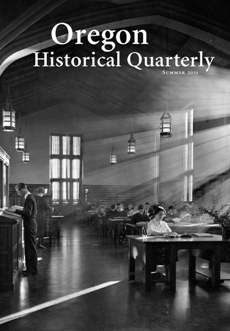by John Sheehy ’82
This fall, Oregon State University Press will publish a book drawn from the Reed Oral History Project entitled Comrades of the Quest: An Oral History of Reed College. The following excerpt from the book features the voices of students and academics who found their way to Reed in the 1920s and 1930s. It offers a sense of the socio-economic and cultural diversity of students at the time–many of them first-generation college students from small towns and farms–and also highlights some of the qualities of Reed College that attracted them.
You may order the full article in the summer issue of Oregon Historical Quarterly online.
Excerpt:
REED COLLEGE’S character–and its aspiration to be among the most intellectually demanding schools in the country–was already well established by its launch in 1911. William Trufant Foster, Reed’s first president, sought to make critical thinking the holy grail of the educational experience. He believed that if Reed was to be relevant in an educational landscape dominated by specialized research universities, it would be essential to impart to students the most rigorous possible set of intellectual skills and attitudes for informing every area of inquiry. In doing so, he worked to establish a new kind of college, one that would give renewed vitality to the liberal arts while preparing its graduates for the ever-widening dimensions of the modern world.
To insure the highest standards of intellectual rigor, Foster imposed a number of curricular hurdles, including a senior thesis and orals exam. To instill self-discipline and discourage students from working for grades instead of for learning, after 1915, professors gave no grades except on request after graduation. To stress democracy and inclusiveness, Foster banned fraternities and sororities as well as the sideshow amusements of intercollegiate sports. To ensure small, intimate classes, he adopted a ten-to-one student-to-faculty ratio and directed professors to focus on teaching, not research. Finally, to promote intellectual freedom and better capture students’ enthusiasm, Foster established a free electives curriculum.
Continue reading Voices of Reed in Oregon Historical Quarterly
